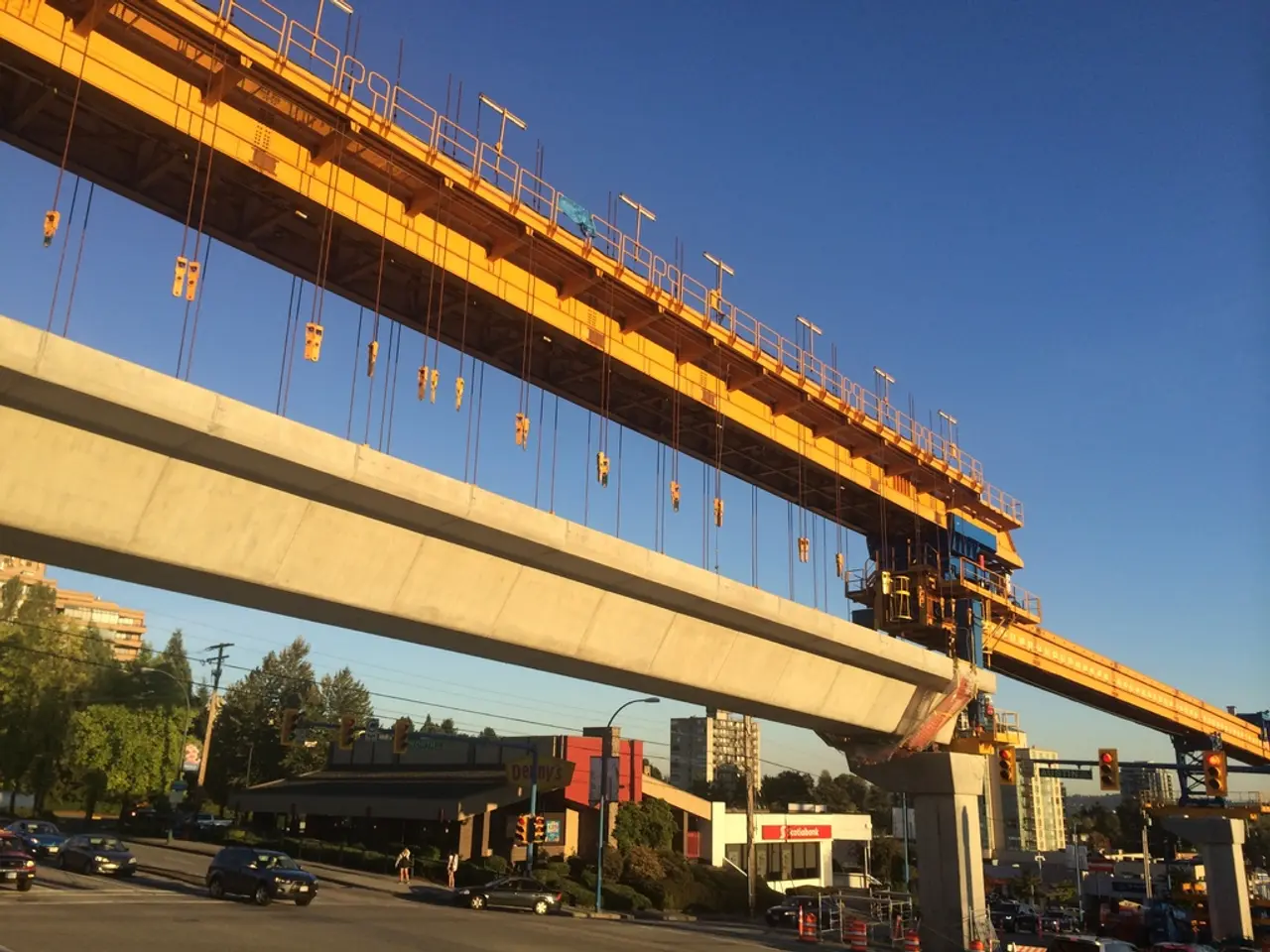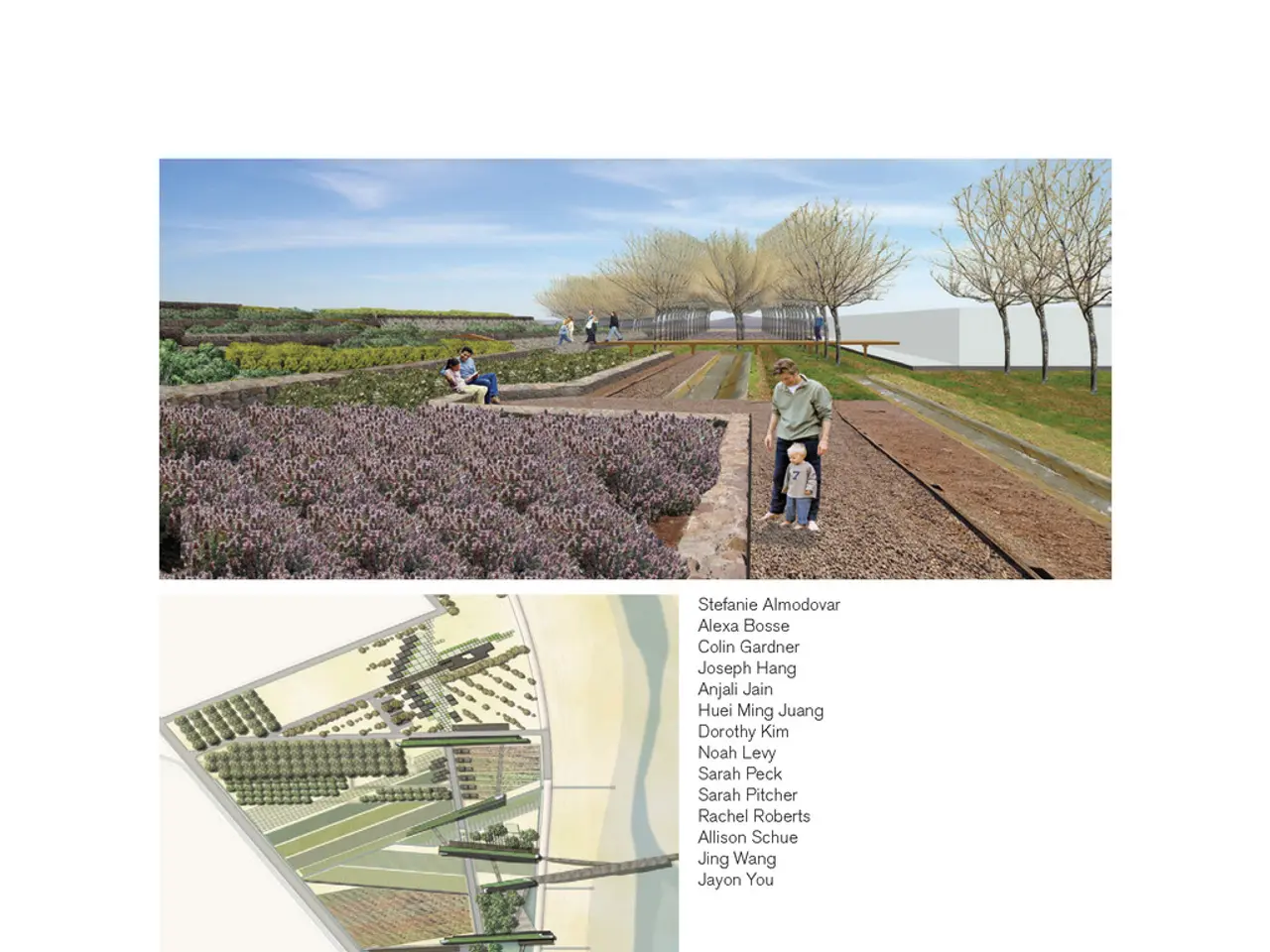Germany Experiences Growing Payment Delays in Coface Marketplace
In the latest Coface study, conducted on a sample of 847 companies, it has been revealed that payment delays have been on the rise among German businesses, marking the fourth consecutive year of deterioration.
The construction sector has been hit the hardest, with 24% of companies in this sector reporting prolonged payment delays. The study, conducted in May and June 2025, found that 81% of companies reported new payment delays, a 3% increase compared to 2024.
Uncertainties in US trade policy and global politics are likely causes for this change in perception. The United States have lost appeal, returning to the popularity levels of the first term of Donald Trump.
Despite the deterioration, the average duration of delays remains well below the pre-pandemic average of 39.7 days. Germany's usual preference for short payment terms has further strengthened, with 92% of interviewed companies requiring payment within 60 days, the same level as in 2016.
In 2025, 84% of German companies offer payment terms, a record since 2016. However, 80% of these prolonged payment delays are not recovered, representing a significant commercial risk.
The increase in payment delays affects all sectors, with particularly notable delays in financial advisory and metal industries. The deterioration of payment practices strains business liquidity and increases financial risk across the economy.
Concurrent economic challenges, including a contraction in Germany’s economy, a surge in the shadow economy, and high inflationary costs, exacerbate these issues.
The construction sector is expected to be impacted due to the overall economic instability and payment delays. While exact sector-specific data is limited, the ongoing economic volatility and slower payments can result in cash-flow pressures on construction firms, delaying projects and increasing financing costs.
The German government’s economic stimulus package planned for the second half of 2025 aims to boost growth, potentially providing relief and supporting recovery in construction and related industries. Longer payment delays and tighter liquidity may increase risks of insolvencies among smaller contractors, who typically have less buffer against delayed receivables.
In summary, the rising payment delays in Germany in 2025 are mainly due to political and geopolitical uncertainties, increasing financial stress for many businesses including construction. This leads to greater liquidity risk, project slowdowns, and heightened calls for government support to stabilize the sector and broader economy.
[1] Coface (2025). The ninth Coface study on the payment behavior of German companies. [2] Coface (2025). The impact of prolonged payment delays on German businesses. [3] Bundesbank (2025). The shadow economy in Germany reaches over 11% of GDP. [4] German Federal Government (2025). Economic Stimulus Package for Growth and Recovery.
Other industries, apart from construction, have also experienced notable prolonged payment delays, such as finance and business advisory, metal industries, and financial advisory sectors. The unpaid debts pose a significant commercial risk, with 80% of prolonged payment delays not recovered by the affected companies.




